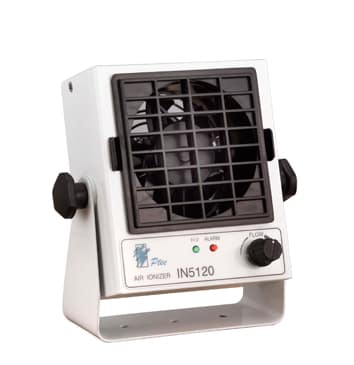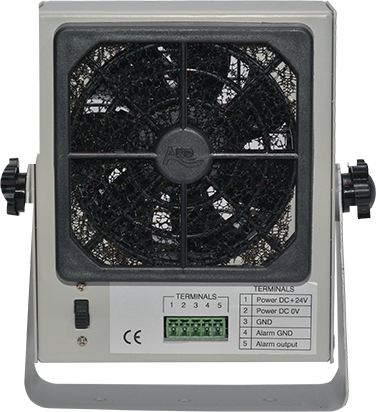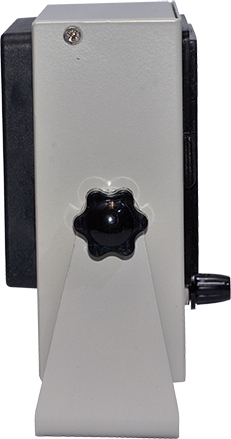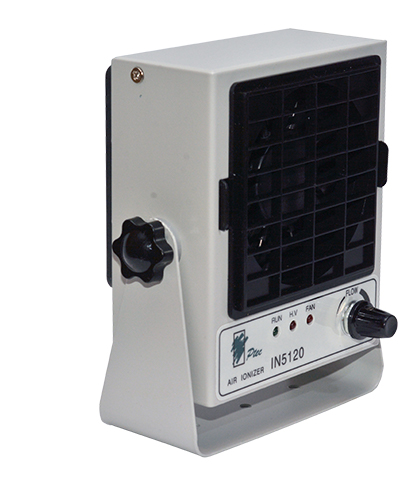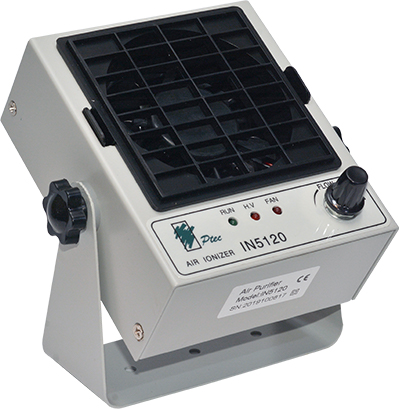PTEC IN5120 "In Tool" ESD Ionizing Blower
- Remove Static Charges Quickly and Efficiently With Only Airflow
- Ionizers are Best Used When Traditional Methods of Draining Static Charges with a Grounding Wire Cannot Be Used.
- Perfect for "In Tool" Applications or Single Station Use
- Small Footprint – Does Not Take Up Workstation Space
- Variable Fan Speed - Low To High Speed
- Universal - The Ptec Ionizers Works on All Power Circuits: 100-240v and use IEC Power Cables which can be changed based on Power
25 in stock (can be backordered)
The Ptec™ IN5120 In Tool Small Ionizing blower is versatile table-top or “in-tool” solution for static issues in small spaces.
The IN5120 In Tool Small Ionizing blower combines exceptionally fast static decay capability with excellent balance stability, all in a small footprint. Designed to protect most static sensitive devices, the IN5120 uses a specialized piezoceramic technology that makes all the Ptec™ ionizers so reliable.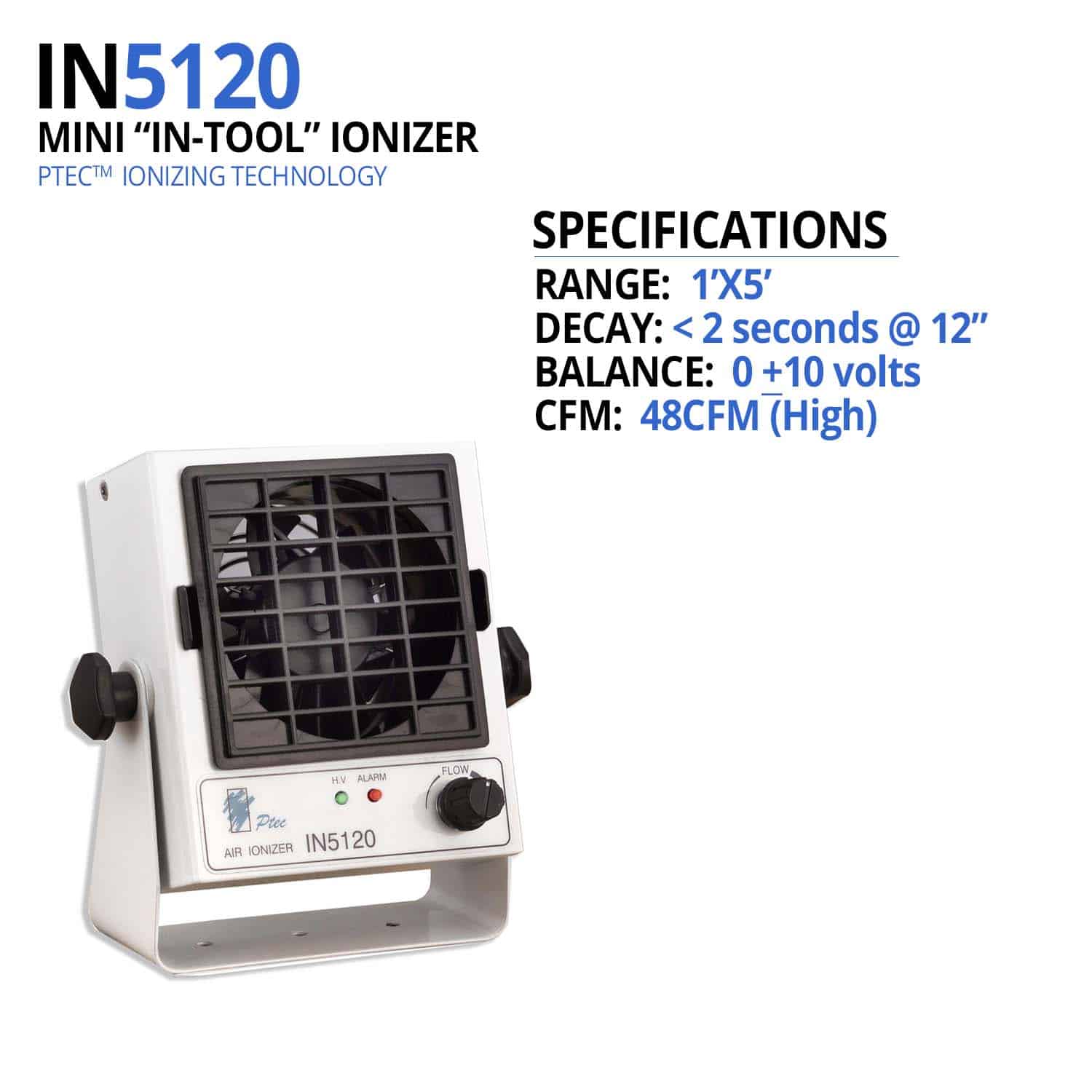
About Ptec™ Technology
A specialized piezoelectric high voltage transformer makes Ptec™ ionizers among the most reliable ionizers manufactured. Small, lightweight and stable, Ptec™ products are designed to remain in balance and to alarm when the HV output affects performance. The model IN5110 benchtop static eliminator produces a 68KHz AC output of approximately 2200V and a continuous stream of balanced air ions. Ionizers that use Ptec™ technology do not require calibration* and only minimal maintenance.
Features
On the front panel of the IN5120 are two LEDs. The green LED indicates that power is applied to the unit. The red LED is illuminated when an alarm condition occurs. A variable fan speed control, on-off switch, and removable finger guard are also on the front panel.The rear panel of the ionizer has the 24 VDC power input connector and a grounding point.
- Physically small and light.
- Rapidly decays static charges.
- Excellent ion balance and ionization performance.
- Ionization (green) and HV alarm (red) lights.
- No periodic adjustments.
- Durable, replaceable tungsten alloy emitter points.
- Removable front grill. Adjustable air volume.
Power Requirements
The IN5120 In Tool Small Ionizing blower can work on all power circuits, from 100-240volts, without any adjustments. This means the standard ionizer can be used in many different countries and power circuits and performance will not be affected.
Verification and Calibration:
*The IN5120 ionizer comes factory calibrated and with a calibration certificate. Ionizer performance can be tested and verified with a charge plate monitor. Important tests to perform are positive and negative decay times and ion balance. It is recommended to test ionizer performance at least 1 per year.

